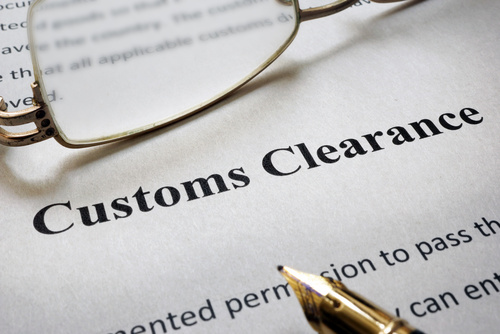
The government has announced a new “package of improvements to streamline customs processes and reduce admin burdens for business”.
HMRC and the Treasury said that today’s series of announcements will simplify export and import process for traders while upholding the UK’s “high regulatory and security standards at the border”.
Aiden Reilly, director of customs policy and strategy, borders and trade at HMRC, said government had “listened carefully” to industry and that these changes will “simplify and streamline customs processes and reduce administrational burdens for importers and exporters”.
1. Consultations
HMRC published the results from three consultation processes that were initiated shortly after the Spring Budget in March 2023.
The first was on the development of a voluntary standard for customs intermediaries. Most of the 55 respondents to the survey said a voluntary standard could set a benchmark, drive best practice and improve quality in the sector.
IOE&IT has previously said it supports the introduction of a voluntary standard, citing research showing that its members backed the policy. At the time, IOE&IT director general Marco Forgione said IOE&IT stood “to support the introduction of standards for customs intermediaries through our world class suite of qualifications and training courses.”
HMRC also published the results of a consultation on temporary admissions (TA). This process allows goods to be brought into the UK on a temporary basis without paying import duties. HMRC said the responses contained a number of proposals for improvement, including expanding the eligibility criteria, and widening the scope and conditions for TA.
The third consultation was on the future of customs declarations, specifically seeking advice on how declarations could be streamlined and how technology could be used to make the process of completing them more effective.
Among other responses, HMRC said most respondents wanted the government to work with industry to make changes, nothing that most technological solutions available in the market were not suitable for every type of business.
IOE&IT expressed the voice of its members and the wider trade community when it submitted its responses to all three of these consultations.
2. Modernising authorisations
The government also announced the next stage in its Modernising Authorisations project, an initiative announced in the Spring Budget 2023.
The initial aim of the project was to reduce administrative burden for using procedures – such as AEO or inward and outward processing – by taking a "once and done" approach, with the objective that traders will not have to submit the same information twice.
Since the Budget, the government says it has revised authorisation application forms to make them easier to use. There has also been testing on the data required for the "once and done" approach.
Today, HMRC has said it will move to the next phase in the project, specifically focused on updating and introducing new authorisation guidance, while continuing to co-design future authorisation processes with industry. The project will commence delivery of a new customer portal in 2024 with plans to conclude delivery in 2025.
3. Special procedures, temporary storage and duty deferment
HMRC also announced today that it will make changes to the way customs guarantees work for special procedures, temporary storage and duty deferment. The aim is to allow more traders to access these various procedures.
Under the planned changes, which are expected later in 2024, guarantees will not be required from approved traders for duty deferment accounts containing below £30,000, tripling from the current £10,000 threshold.
HMRC says that this could save thousands of deferment users up to £2,800 each annually, and improve their access to working capital, with guarantees only being required from a small minority of traders authorised for special procedures and temporary storage.
4. Transit policy simplifications
The final announcement made today was a set of three measures designed to make the transit process simpler, cheaper and more accessible:
- From today, authorised consignees will no longer be required to physically unload goods at their approved locations to end a transit movement, providing the movement originated at an authorised consignor’s approved location and the goods were moved under a seal.
- Also from today, government is removing the requirement to submit an export declaration when goods under transit are loaded onto vehicles in Great Britain for use or consumption on board, providing evidence of the goods leaving is retained.
- In 2024, as part of the modernising authorisations project, the government will introduce a digital process to allow authorised consignors to add a client’s premises to their authorisation to start transit movements from these locations.
The view from IOE&IT
“IOE&IT has engaged with the government on a number of these areas, representing our members’ views across multiple consultations. These announcements mark a positive day for UK customs and will make the process of importing and exporting simpler for the trading community.



